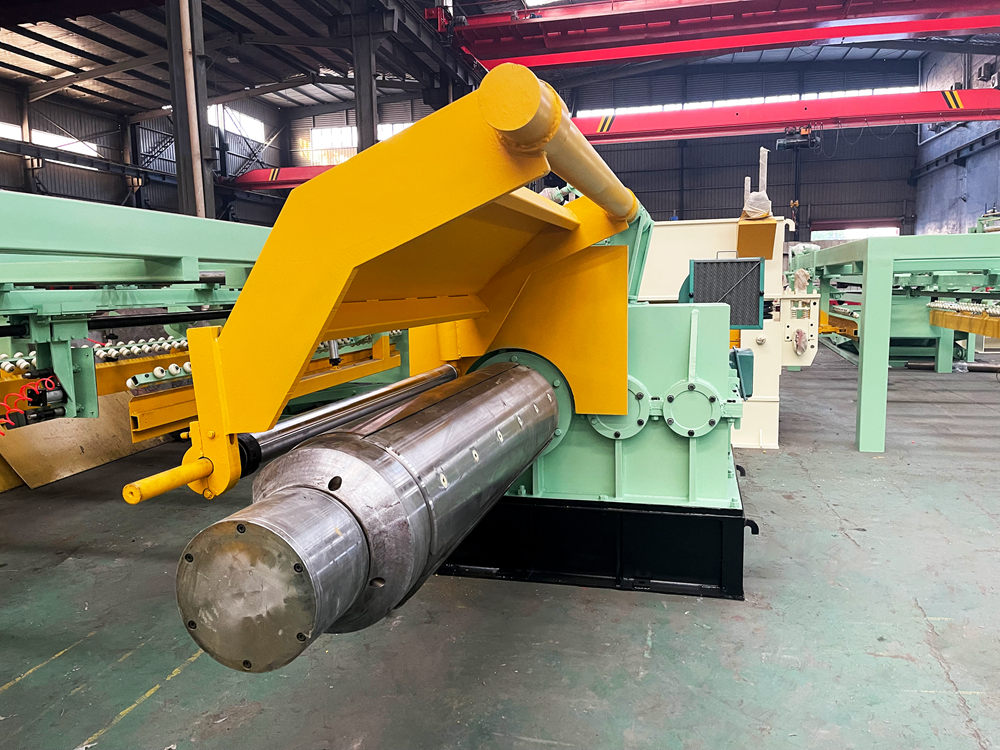The Evolution and Importance of Drywall Stud Machines
In the construction industry, precision and efficiency are key to ensuring quality and timely project completion. Among the many tools that have emerged to enhance these aspects, drywall stud machines have gained significant prominence. These machines streamline the process of framing, allowing builders to fabricate wall structures with speed and accuracy.
What is a Drywall Stud Machine?
A drywall stud machine is a specialized piece of equipment designed to produce metal or wooden studs used in drywall construction. These studs form the backbone of interior walls, providing support for drywall panels and enabling the construction of various room layouts. The use of studs is essential for achieving structural integrity and aligning drywall sheets neatly.
Traditionally, framing was a labor-intensive activity requiring skilled carpenters to measure, cut, and assemble studs manually. However, as construction demands increased, so did the need for machines that could automate this process, leading to the development of drywall stud machines. These machines not only increase production speed but also enhance the overall quality of the finished product.
Benefits of Using a Drywall Stud Machine
One of the primary advantages of drywall stud machines is their ability to reduce labor costs. With fewer workers needed for manual framing, companies can allocate their human resources to other critical areas of the project. Additionally, drywall stud machines minimize the margin of error that often accompanies manual work, leading to fewer wasted materials and less time spent on corrections.
Another significant benefit is the consistency of the product. Drywall stud machines produce studs that are uniform in size and shape, which is crucial for ensuring that drywall panels fit seamlessly. This uniformity not only contributes to the aesthetic appeal of the finished walls but also ensures that they are structurally sound.
Moreover, these machines are designed to accommodate various materials, including steel and wood. This versatility allows builders to choose the best option for their specific project needs, whether they require the lightweight nature of metal studs or the traditional appeal of wooden ones.

Advancements in Technology
Recent advancements in technology have taken drywall stud machines to the next level. Modern machines often incorporate computer numerical control (CNC) systems, which provide unparalleled precision in stud cutting and assembly. Operators can input specific dimensions and configurations, and the machine executes the tasks with minimal human intervention.
Additionally, many of these machines are now equipped with features that enhance safety, such as automatic shut-off mechanisms and protective guards to prevent accidents during operation. These developments not only improve worker safety but also increase the overall efficiency of the framing process.
The Future of Drywall Stud Machines
As the construction industry continues to evolve, the demand for faster and more efficient building methods will only increase. The drywall stud machine is poised to play a significant role in the future of construction, especially with the rise of prefabrication and modular building techniques.
Furthermore, sustainability is becoming a focal point in construction, and drywall stud machines can facilitate the use of eco-friendly materials and practices. By optimizing the use of resources and reducing waste, they contribute to the industry's shift toward greener building methods.
Conclusion
In conclusion, drywall stud machines have transformed the landscape of construction by enhancing precision, efficiency, and safety. Their ability to produce uniform studs quickly and accurately makes them an invaluable asset for builders. As technology continues to advance and the industry adapts to new challenges, drywall stud machines will undoubtedly remain at the forefront of modern construction practices, driving innovation and sustainability in the building sector.